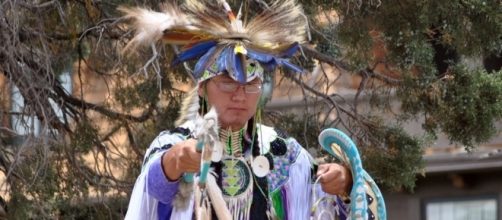Christmas is the time for Christian families around the world to gather together and exchange gifts and today even non-Christians often do the same these days, but did you realize the same tradition predated Christianity in North America?
Potlatch, a non-Christian celebration
The Native American cultures of the Cascadia region (mostly Washington, Oregon, and Northern California) celebrate to this day a tradition of gift giving around the Winter Solstice which is called Potlatch in the Chinook trade language used between various regional tribes. These native americans include the indigenous peoples such as the Haida, Nuxalk, Tlingit, Tsimshian, Nuu-chah-nulth, Kwakwaka'wakw, and Coast Salish groups, cultures, or tribes.
At a Potlatch people of the various cultural groups gathered and those able to do so held a feast and spread the village’s accumulated wealth among its members by gift giving. Potlatch celebrations were remarkably like today’s Christmas celebrations in some ways with family and friends gathering together to sing, eat, and share songs as well as gifting.
Solstice comes but twice each year
The solstice is the astronomical term used to describe the days when the sun reaches the highest point of the year in the sky at noon in Summer, or the lowest point in the Winter solstice. Natives and many cultures around the world celebrated both the Summer Solstice which is the longest daylight time of the year in the Northern Hemisphere as well as the Winter Solstice (December 21 now) which is the day with the shortest period of daylight.
But the tradition of gift-giving among the Native Americans wasn’t limited to Potlatch or even the Winter. Various Indigenous groups around the continent had other celebrations where gift-giving was part of the tradition.
A Puritan Christmas
Here is the sum total of Northeastern American Puritan Christmas celebrations. If caught celebrating Christmas you get fined.
It will probably come as a surprise to people who see the Puritans as the quintessential Christians in the early colonies, but being a Christian doesn’t necessarily following the old Roman Catholic holidays and the Puritans, in their great religious freedom fervor which drove them across The Atlantic, banned all celebrations of Christmas.
In fact, it was not until after The Civil War period when both the North and South agreed on the idea of celebrating Christmas. Prior to that, it was generally considered a sinful display.
This time of year it is important to realize that even non-Christians, including many Native Americans do celebrate the time of the year in similar ways and are really not that different. In his desire to be "the bride at every wedding and the corpse at every funeral," Donald Trump has vowed to stop the mythical War on Christmas which has become a traditional way for fanatics to attack other religions and cultures in the guise of religion.

